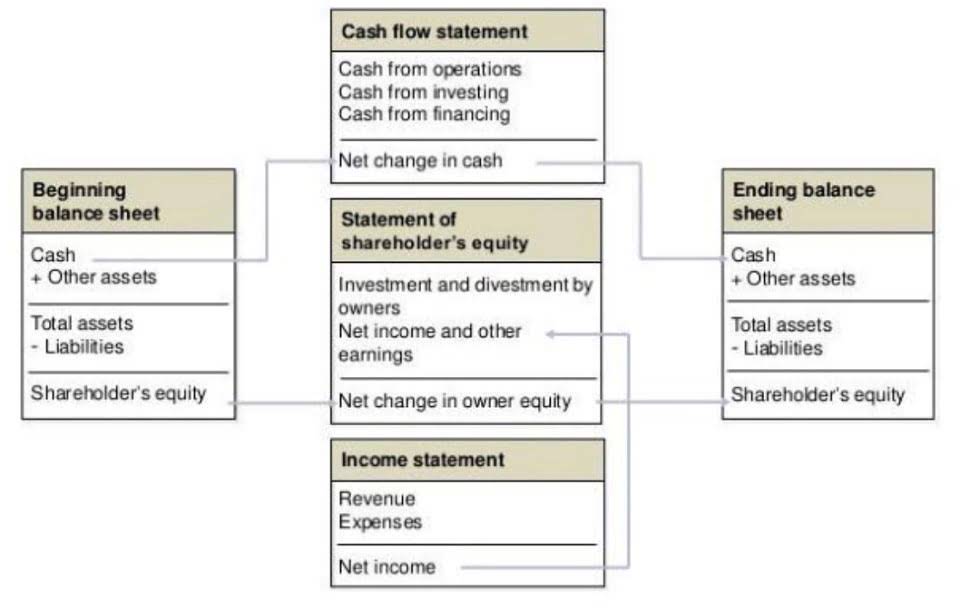
Some accounting software is considered better for small businesses such as QuickBooks, Quicken, FreshBooks, Xero, SlickPie, or Sage 50. Larger companies often have much more complex solutions to integrate with their specific reporting needs. Companies hold a certain amount of inventory, or finished products/goods, that have not yet been sold. It’s important that a company does not hold too much or too little of an unsold product or service. The IRS outlines these different business taxes as income, excise, employment, and self-employment taxes. All businesses pay income tax unless the company is considered a partnership.

Personal Growth
- Accountants also help their companies secure financing and find investors.
- Accounting professionals like CPAs or tax advisors can also provide you with knowledge and insight that are simply inaccessible to non-accountants.
- Read more about getting paid faster in our guide to getting invoices paid on time.
- You will also learn about relevant, applicable mathematical properties of each family of functions, including rate of change, concavity, maximizing/minimizing, and asymptotes.
- If you operate a seasonal business, for instance, then you may choose to begin your fiscal year at the beginning or end of your peak sales season.
- You want the product to allow room for your business to grow, but you don’t want to spend a lot of extra money on features you may never need.
If not, a company could think it has more or less cash flow, or profits, than it actually has. Inaccurate reporting may later lead to serious problems for a company, meaning it may not be able to pay its debts, or money set aside for investing is not available. The most important financial documents for any business owner who wants to understand their finances are balance sheets, cash flow statements, and income statements.
Best for Very Small Businesses
Your profit and loss statement (also known as P&L or an income statement), both for the current month and year-to-date, tells you how much you earned and how much you spent. Comparing your actual numbers to your planned numbers highlights where you may spend too much or not enough. Our partners cannot pay us to guarantee favorable reviews of their products or services. The Alliance for Responsible Professional Licensing (ARPL) was formed in August 2019 in response to a series of state deregulatory proposals making the requirements to become a CPA more lenient.
Can You Manage Expenses and Bills With Accounting Software?
Without accounting, it would be incredibly difficult to gauge your business’s performance and whether it’s on track to meet its goals and obligations. Financial accounts have two different sets of rules they can choose to follow. The first, the accrual basis method of accounting, has been discussed above. These rules are outlined by GAAP and IFRS, are required by public companies, and are mainly used by larger companies.
Proper accounting allows a company’s management to better understand the financials of its business. This is so they can strategically plan its future expenditures in order to maximize profit. Business accounting is the process of collecting and analyzing a company’s financial information. Business owners may assemble an in-house accounting team, hire an accountant or handle accounting on their own.
What method should you choose to keep your books?
Create a payroll file sorted by payroll date and a bank statement file sorted by month. Many accounting software systems let you scan paper receipts and avoid physical files altogether. They include invoicing, financial data management, and other business bank account fun. Small businesses may benefit from an accountant as the company grows and the need for more financial tracking, recording, forecasting, and budgeting accrues.
A small business may have only a few hundred transactions per month, while an enterprise may handle many thousands or even millions. It’s an affordable yet feature-rich platform what is business accounting that helps with manual invoicing and provides a client portal for easy collaboration. It also offers many integrations to help streamline your financial processes.
Maintaining systematic records
Transactions may be external (between a business entity and a second party, e.g., goods sold on credit to Hari or internal (do not involve a second party, e.g., depreciation charged on the machinery). The primary aim of accounting is to provide necessary information to the owners related to business. Accounting is used to communicate financial information in respect of net profits (or loss), assets, liabilities etc., to the interested parties. Unfortunately, no objectively verifiable method has been developed for universal application. As per Robert N. Anthony, “Accounting system is a means of collecting, summarizing, analyzing and reporting, in monetary terms, information about the business”. This rule applies to expenses and income such as salaries, sales, purchases and commissions.

